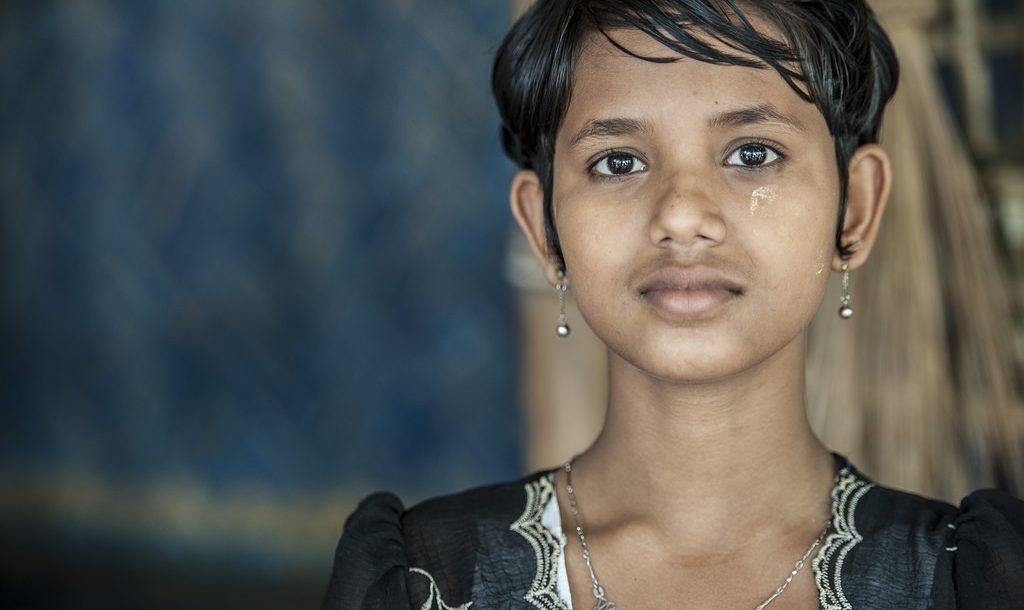The international community cannot solve the divisive issue of Myanmar’s Muslim minority. Instead the government must take the lead on Rohingya, writes Trevor Wilson.
International pressure on Myanmar over its poor treatment of Rohingya is more necessary than ever, as their circumstances worsen and violence persists.
But the international community cannot fix this problem. It remains the Myanmar Government’s responsibility to find a resolution. Neighbouring governments which are treating Rohingya “boat people” appallingly, either in displaced persons camps or as semi-legal low-skilled migrant workers, must also be pressured into treating Rohingya better. It is not in anyone’s interest to have Rohingya take up arms against their oppressors, using their Muslim religion as a pretext, or to transfer their problem elsewhere.
This month the UN Human Rights Council in Geneva, for which is Australia is campaigning to be voted as a board member, met in its 34th regular session. Some commentators over-reacted when the Australian delegation did not join Human Rights Council condemnation of the Myanmar Government for its lack of effective action over extra-judicial killing of internally displaced Muslims in western Myanmar. This condemnation – calling for a Commission of Inquiry, opening a UN Human Rights office in Myanmar, and castigating – did not secure full support from any UN body, and almost certainly went too far. Not unexpectedly, it was strongly criticised by the Myanmar Government as being biased and excessive, comments that Myanmar’s leader Aung San Suu Kyi did not reject.
Rohingya groups in Myanmar many years ago forswore use of force to achieve their political goals, and while the October 2016 incidents appeared as if this policy had been abandoned, it is not entirely clear that this is the case. Some Indian security experts claim that radical Rohingya elements with possible Al Qaeda connections have succeeded in penetrating longstanding Rohingya organisations, but conclusive evidence of this is lacking. Rohingya groups in Australia protested against the extra-judicial killings by the Myanmar security authorities, but also refuted allegations of radicalisation.
Despite much sympathetic press commentary, sentiment among UN members is far from united about the Rohingya. Human rights activists have pushed UN representatives to take stronger stands, and Australia’s Senate also passed a resolution calling for better treatment of all minorities in Myanmar, not an unreasonable proposition by any means.
UN High Commissioner for Human Rights Zeid, in a report in February 2017, described the “devastating cruelty” used against children in Myanmar. Special Rapporteur on Human Rights in Myanmar, Professor Yanghee Lee expressed grave concern over the situation in Rakhine State, where Rohingya are being held in detention centres, and complained about not being granted “unfettered access” to the camps. UN reports had also warned that ethnic cleansing and crimes against humanity are “very likely” under way in Rakhine state, but were unable to document this. Of course, various high-level UN officials sought to reflect their concerns in a number of more assertive public statements, but these statements had the effect of hardening Myanmar’s defensive position.
As a direct result, US Government agencies in late 2016 began helping Myanmar mount a defensive diplomatic strategy, while allowing Myanmar’s Government to avoid adopting effective policy measures. Recent curtailment of anti-Muslim provocations by a leading extremist Buddhist monk might help, but is not enough.
One clear problem for the Myanmar Government — as well as for the Rohingya — is that under Myanmar’s constitution, the Myanmar Army exercises effective control over Rakhine State through the Ministers for Home Affairs, Border Affairs and Defence that it appoints to Cabinet (including the Cabinet of Aung San Suu Kyi’s National League for Democracy Government). This will almost certainly require Aung San Suu Kyi to exercise greater leadership on Myanmar’s Rohingya problem.
A supportive position by Australia, rather than one founded on confrontation, could help. ASEAN members should also do more to find a satisfactory solution.
Trevor Wilson is Visiting Fellow, Department of Political and Social Change at the ANU Coral Bell School of Asia Pacific Affairs.
This article is published in collaboration with Policy Forum — Asia and the Pacific’s leading platform for policy analysis and debate.
 Facebook
Facebook  Twitter
Twitter  Soundcloud
Soundcloud  Youtube
Youtube  Rss
Rss 